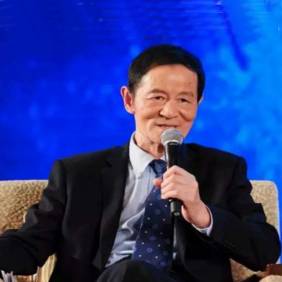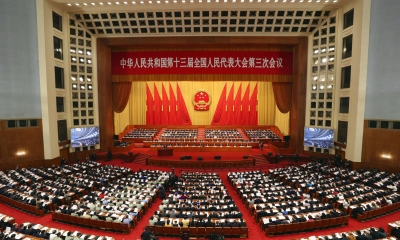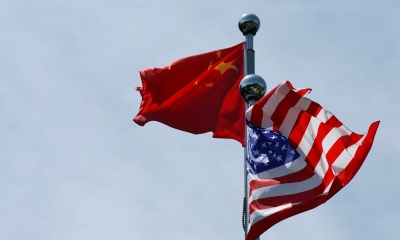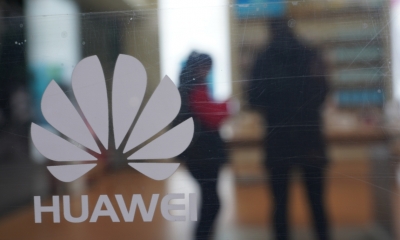Yellen’s China Trip: Constructive Yet More Follow-ups Needed
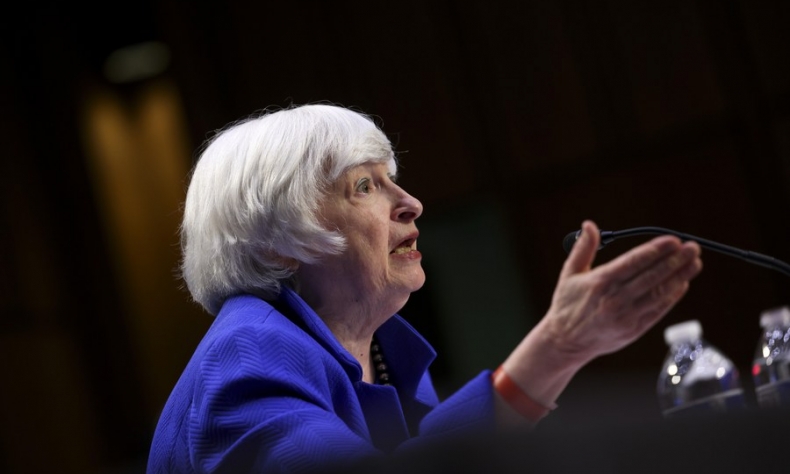
It is a long way ahead before the substantive improvement and even revival of China-U.S. relationship, including economic and trade ties.
Janet Yellen, U.S. Secretary of Treasury, wrapped up her four-day China trip and left Beijing on July 9, 2023. Chinese Premier Li Qiang met with her on July 7 and emphasized that the world needs a generally stable China-U.S. relations, and that the correct handling of bilateral relations is vital to the future and destiny of mankind. He Lifeng, Chinese Vice Premier, and Liu Kun, Chinese Finance Minister, each had a long dialogue with Yellen. The high-level and straight-forward exchanges between the two governments are undoubtedly constructive.
Yellen’s China trip, which came three weeks after her colleague U.S. Secretary of State Anthony Blinken’s visit to China, was another major move and an important part of the following-up high-level official exchanges between the two countries following the meeting between President Xi Jinping and President Biden at G20 Summit in Bali, Indonesia last November, and also key preparation for the upcoming meeting between the two leaders of China and the United States at 2023 APEC Summit in San Francisco in the coming November.
At a press conference, Yellen responded to earlier remarks by President Xi Jinping and Premier Li Qiang that the world needs a generally stable China-U.S. relationship. She said that the relationship between the United States and the People’s Republic of China is one of the most consequential of the world. She also said that “We believe that the world is big enough for both countries to thrive.”
Yellen reaffirmed that the U.S. does not want to “de-couple” with China, a basic position that China shares. Both sides also agreed to encourage the development of bilateral trade and investment for the benefits of both peoples.
Both sides agreed to step up cooperation in global hot issues, including fighting climate change, and the debt distress relief for many developing countries.
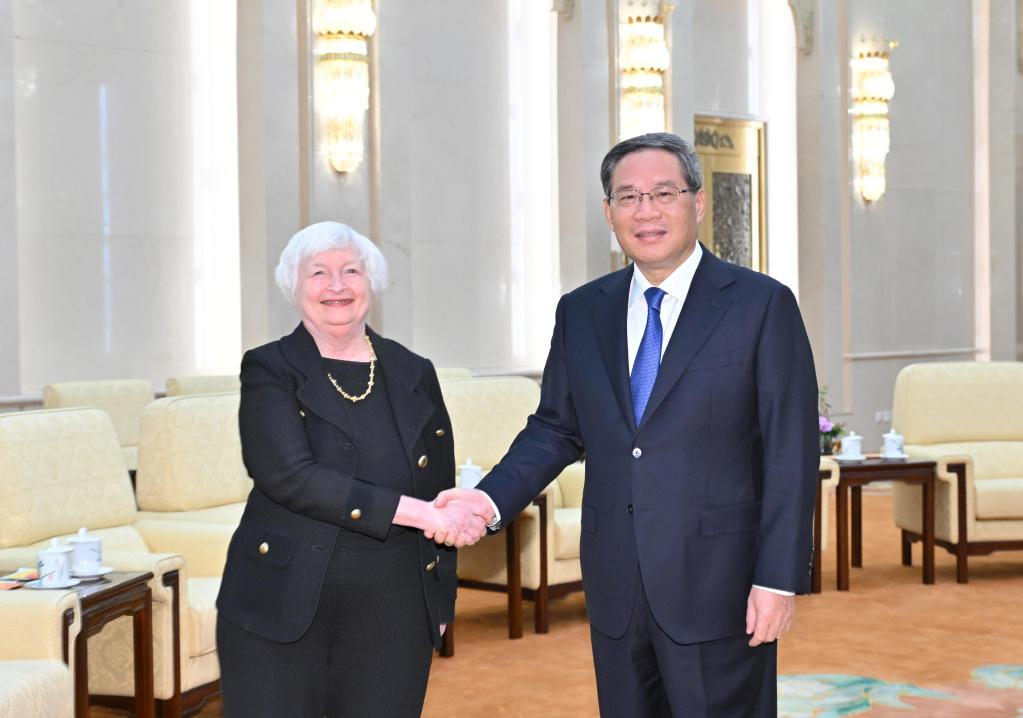
Yellen is the chief cabinet member in economic and financial affairs in Biden Administration. Her China trip laid the base for China-U.S. bilateral exchanges and work on economic, trade and investment issues, following Blinken’s China trip that focused on bilateral relations. We should endorse the constructive results of Yellen’s China trip and hope that more exchanges will follow up to manage differences and avoid conflicts, and to bring China-U.S. relations back to the right track of mutual respect and peaceful co-existence.
Undoubtedly, the two sides still differ on a number of issues as well. China demands the U.S. to change its wrong trade policy on China and revoke the chips and high-tech sanctions against China, as well as stop excluding China from the normal international supply chains on account of the so-called “values”. Secretary Yellen, on her part, demands that China should “abide by the trade rules”, change its government-led trade policies, provide more market access to American businesses in China and enhance IP protection.
While reaffirming not to de-couple from China, Yellen did not use the word of “de-risk”, but explained that the diversification of supply chain out of security reasons is a different issue. However, the narrative differs from the facts. According to this logic, the “value-based” resilient supply chains excluding China, especially in chips and other high-tech sectors, are only for national security reasons, not towards de-coupling. In fact, however, under the narrative of “national security”, Washington’s efforts for “diversification of supply chain”, including chips 4, Indo-Pacific Economic Framework (IPEF) and U.S.-EU Trade and Technology Council (TTC), and sweeping ban of advanced process ships and related high-tech export to China, are indeed acts of de-coupling from China. It does not seem “a different issue”. Hence, the de-coupling issue remains on the top agenda of the follow-up exchanges and joint working groups.
Washington’s wrong trade and tech policies to China is based on its wrong geopolitical cognition and strategy which identifies China as the only country with both the will and ability to change “rule-based international order”, thus “constitutes most serious geopolitical challenge to the U.S.” Therefore, it is a long way ahead before the substantive improvement and even revival of China-U.S. relationship, including economic and trade ties.
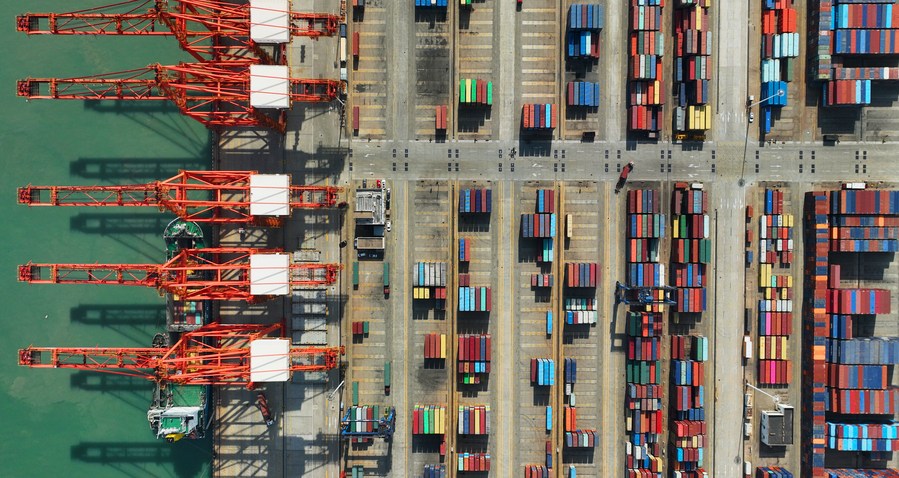
In this sense, the follow-ups should focus on the concrete economic, trade, technology and investment issues. Both sides should restart institutional dialogues and consultations as soon as possible, including economic and strategic dialogue, dialogues on trade and industry policies, science and technology, as well as two-way investment. The U.S. should revoke unfair tariffs on Chinese products and high-tech restrictions on China, while promoting resilient China-U.S. supply chains, education, cultural and people-to-people exchanges, etc. Ad-hoc joint working groups should be set up and start working on specific issues for early practical solutions and harvest. The sooner the better.
China and the U.S. should also resume cooperation on global issues. In fighting climate change and cutting carbon emission, China and the U.S. have had very successful cooperation on COP 26 in Glasgow in November 2021 when they issued U.S.-China Joint Glasgow Declaration on Enhancing Climate Action in the 2020s and made a decisive contribution to the success of the conference. China and U.S. should do more in this regard.
China has been very successful in renewable energy development in recent years. In 2022, China added 20.7 GW of solar and wind energy power generation, or 70 percent of the total added power capacity while the U.S. is also making headways in this respect. The two countries should also pick up joint efforts for relief or reschedule of the debt distress in many developing countries. China and the U.S. have already been working together in the framework of G20, IMF and other institutions. The debt sustainability is vital to reduce the world economic risks and to achieve the UN 2030 SDGs. China and the U.S. as the two largest economies share the unshakable global responsibility. It is anticipated that, Secretary Yellen’s China trip, while helping stabilize the bilateral relations, will bring a new opportunity for the two countries to enhance cooperation for world economy and for all peoples the world over.
The article reflects the author’s opinions, and not necessarily the views of China Focus.
 Facebook
Facebook
 Twitter
Twitter
 Linkedin
Linkedin
 Google +
Google +



